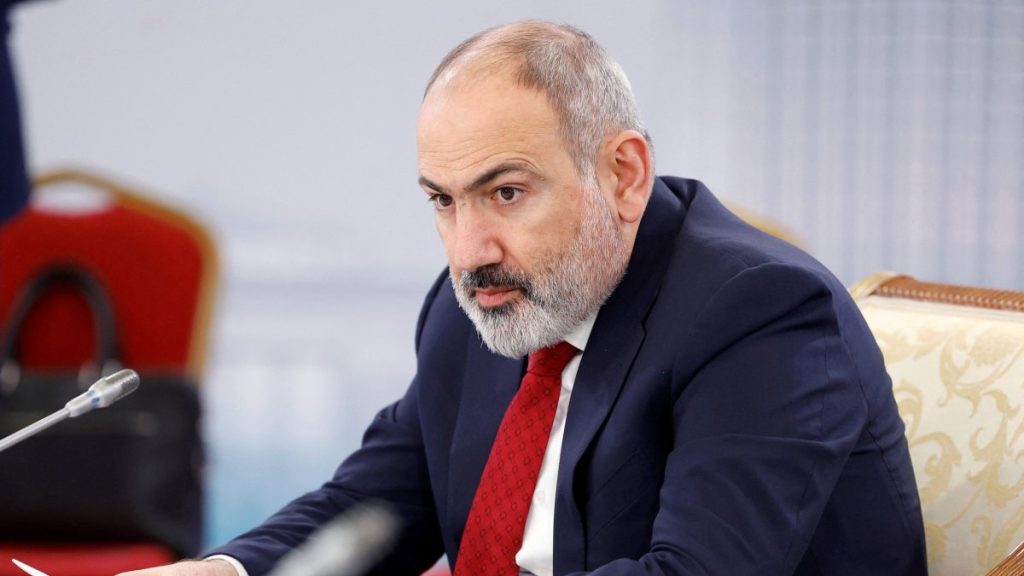On Tuesday, Armenia called on Azerbaijan to sign a peace treaty after decades of tensions, as well as dissolve the Organization for Security and Co-operation in Europe (OSCE) Minsk Group, which Baku had long called defunct.
Prime Minister Nikol Pashinyan proposed simultaneously signing the peace agreement with a declaration on one of Baku’s other requirements – the formal dismantling of the Minsk Group. The group was a mediation format set up in 1991 under the aegis of the OSCE and co-chaired by France, Russia and the United States.
“That is, to place the peace agreement and the joint statement on the dissolution of the Minsk Group structures on the table, and sign both in the same place and at the same time,” Pashinyan said in an address to parliament in Yerevan.
“There is no basis for war … There will be no war, peace,” he said.
Armenia has said it is ready to sign the deal, but Baku wants Yerevan to change its Constitution to remove references that imply territorial claims over Karabakh first.
Pashinyan says that it will require a referendum in 2027, and is pushing to sign the deal earlier.
Azerbaijan has not immediately commented on Pashinyan’s proposal.
Pashinyan also proposed creating a joint Armenian-Azerbaijani “mechanism to investigate border incidents, including cease-fire violations.”
However, since the text of the still-unsigned treaty was agreed upon on March 13, authorities on both sides have reported cease-fire violations 26 times. Multiple incidents have been reported over several days in the last month.
In the five months prior to the treaty announcement, only three violations had been reported.
According to an official transcript of his speech, Pashinyan said that the incidents were: “either a consequence of indiscipline in the armed forces of Azerbaijan, or are aimed at exerting psychological pressure on the population.”
Both sides consistently deny the other’s accusations.
Relations between Baku and Yerevan have been tense since 1991, when the Armenian military illegally occupied Karabakh, a territory internationally recognized as part of Azerbaijan, and seven adjacent regions, including Lachin.
Most of the territory was liberated by Azerbaijan during a 44-day war in the fall of 2020, which ended after a Russian-brokered peace agreement that opened the door to normalization talks and the demarcation of their border.
After a series of slow-moving negotiations, Azerbaijan rushed in troops last year in September and swiftly seized back Karabakh, whose entire population of nearly 120,000 people returned to Armenia after rejecting a reintegration program Baku offered.
Earlier in 2024, Armenia withdrew from several Azerbaijani villages it had controlled since the early 1990s as part of the peace process.


